Popular brands of snowblowers
While a shovel does a good job of removing snow from the sidewalk and driveway, using it is quite physically demanding. Snowblowers, on the other hand, are easier to handle and remove snow faster. I...

By Modern60
Last Updated on,
September 30th, 2025
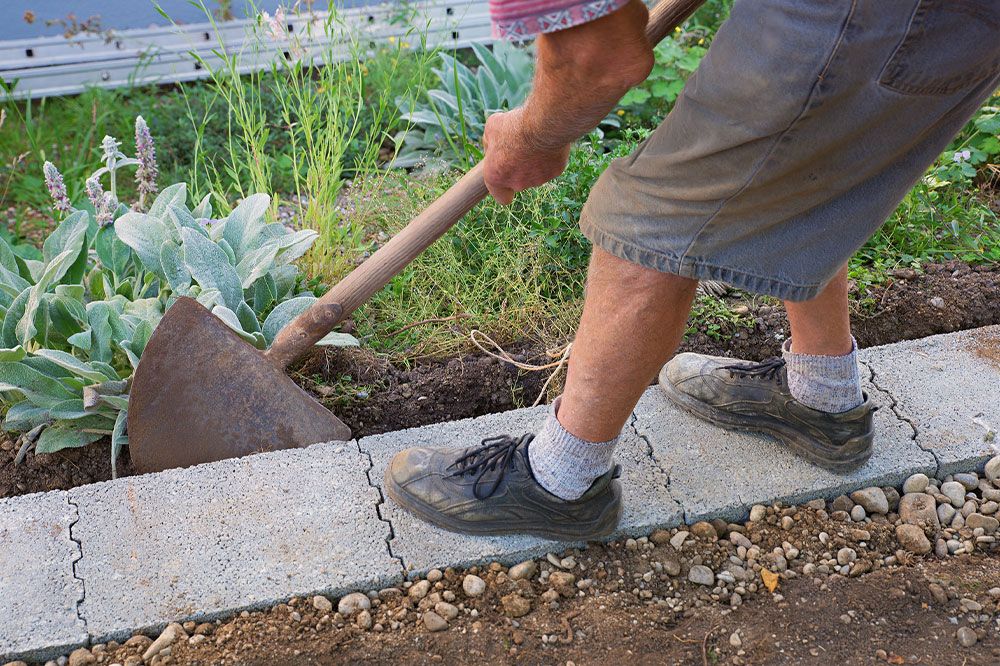
While aging is a privilege and one that is inevitable, it comes with its own set of challenges – physical and cognitive – with dementia being a common occurrence of the latter. This can be heralded with symptoms like memory loss and confusion. While there are treatments to manage the condition, hobbies like gardening can be one of the best activities for those with dementia as it helps exercise the brain and other muscles.

Gardening activities like creating a snack garden can help manage your strength without overexertion. You can fill the snack garden with various edible crops that you can harvest, wash and prepare without hassle. You may also need to water and weed the plants before collecting the ripe fruits and vegetables, which are tasks that could help you flex your core muscles. This constant yet simple physical activity may also help reduce blood pressure and cortisol levels, which may help lower stress. Several factors contribute to this, including breathing fresh air, getting more sunlight, and engaging in relaxing activities regularly. Through gardening, your body could also get an additional boost of serotonin levels, an essential chemical to promote a feeling of calmness and well-being. But besides physical activity, even the yield you get from the snack garden may contribute towards managing dementia. While you could plant anything, ensure you choose your favorite options, so you always have something healthy and delicious to munch on during snack times. Harvesting items like berries and green leafy vegetables could help your body benefit from their antioxidant content. This property could help reduce the risk of inflammation in the brain and delay the progression of dementia symptoms.
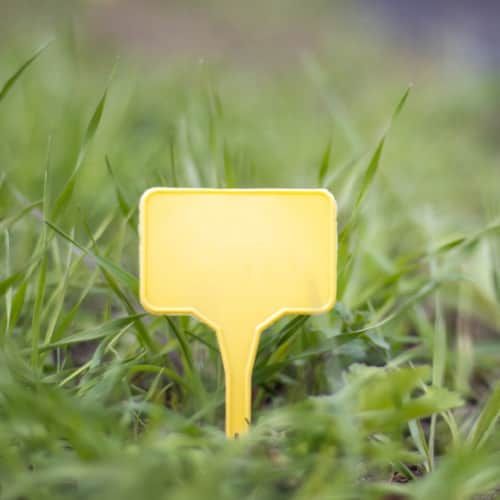
You could pick up garden markers at a local retail store or ask a family member or friend to pick them up on your behalf. Alternatively, you can save money and design using materials you can find at home. Try out this fun activity with family members like grandkids. The base of the craft could be a stone or even Popsicle sticks. You could paint the objects with images of certain plants or what goes where and scatter them around the garden. The steps involved in crafting a garden marker may help boost critical thinking skills and also improve mobility in seniors who have dementia. Another benefit of placing markers around the garden is that it could help you recall and identify fruits and vegetables grown in the backyard. For example, you could paint a rock with the color red with symbols of strawberries, cherries, and apples so that it represents fruits or paint it green to indicate where vegetables are planted in the garden. Consider getting your grandkids involved in the activity. It’s a great way to design the markers while keeping yourself engaged in conversation with them.
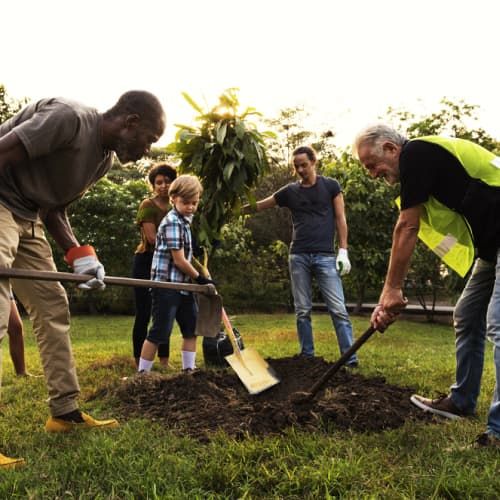
Positive social interaction is one of the key elements to help seniors manage dementia. Interacting with others may help create social bonds, which will help fight chronic stress and inactivity and reduce the risk of depression. A popular way to engage in this activity is to join a gardening club, usually formed by nursing homes for seniors or other retirement communities. As a participant, you may have to pick a different member’s garden to visit every week, including your own. The activity will also give you a reason to go out and about, which will help improve mobility. You could join a virtual garden club if you cannot go outdoors. A family member or friend could always help you join an online club if you are unfamiliar with the internet. While being part of such clubs, members with dementia or other health complications could discuss aspects of their garden, such as what they planted or harvested throughout the week. Joining and interacting in a garden club will help you socialize with others, maintain communication skills, and also boost your mood.
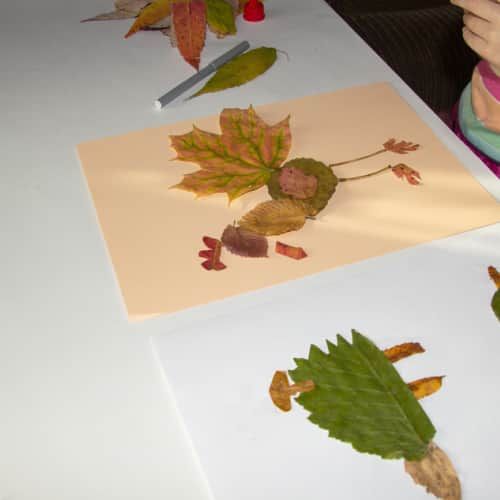
If you have dementia and cannot get out much, you could try indoor gardening activities like leaf crafts. You could find some leaves in the backyard or ask a family member to get the material for you. Use the dried leaves to create various crafts, such as picture art like flower headbands, animal faces, and leaf bouquets. You could also color these items and make them look more vibrant. Once the craft is ready, get it framed and hang it up on the walls of your home. The activity aims to improve your thinking skill, encourage creativity, and promote self-expression. These factors contribute to increased brain activity, which is important if you are a senior affected by dementia. Moreover, trying out leaf crafts at home could keep you engaged for long hours and will make you feel more energized.

For seniors who enjoy the sight and fragrance of flowers, planting indoor bulbs is something they should try. Spring bulbs can grow and yield flowers throughout the year, even in gloomier months. You could purchase these gardening seeds from a reliable nursery; hyacinth, amaryllis, and narcissus are some popular choices. You will then have to plant them in glass containers, root side down, along with pebbles. Add water to the container regularly to ensure it touches the bulb’s root. You could place the bulbs in your kitchen, living room, bedroom, or other parts of your home. Ensure the glass container is placed near a window that receives ample sun throughout the day. The benefit of planting indoor bulbs is that you are constantly focused on nurturing the plants, which includes weeding and watering them to ensure they thrive. Furthermore, this helps keep you occupied and stimulates your brain activity, which is beneficial in managing the effects of dementia.

Another gardening activity suitable for keeping seniors with dementia engaged is soil art. The goal of the task is to stay engaged if you cannot get out too often and also explore your creative side. Moreover, creating art out of soil may help you feel good about your skills, which could help release stress caused by an ongoing mental health condition. To create soil art, you will need three simple items – glue, paper, and soil. Use the glue to create patterns of your choosing on the paper, and sprinkle soil over it so that it encompasses the entire sheet. Let the glue dry for a few hours, then shake off the excess soil to reveal your masterpiece. You could consider framing the craft and placing it in a location of your choice.

There’s nothing like your family members and friends walking into your home to a colorful bouquet of flowers placed on the table. The best part is that most individuals can create a flower bouquet, even those dealing with dementia. You could source the flowers (preferably white roses) from a local nursery or pluck them from your garden. Place the flowers in a vase with water and add a dye of your choice. Keep checking in on the color of the flowers until it starts to match the shade of the dye. If you do not have real flowers or dye, use artificial flowers instead. The purpose of the activity is to stay engaged and have fun while making flower arrangements, which may positively impact cognitive health.

If you have tried scrapbooking as a kid, you might be aware of how much fun this activity can be. Scrapbooking could also be beneficial to stimulate cognitive function as you get older, especially if you suffer from illnesses like dementia. You will need a couple of leaves or flowers, paper, and paint to get started. Dip the leaf/flower into the paint, press it down onto the paper, and let it dry before closing the book. The activity requires you to make decisions about what to include on a page and organize. The thought process lights up the frontal lobe, engages the brain, and helps keep it sharp as you age. The best part about scrapbooking is that you do not have to limit your creativity to things you find in your garden. You could also use other objects to create imprints in the book, including creating a family tree. Trying to recall the names of each member in every branch could be helpful for people with cognitive complications like mild dementia and Alzheimer’s. Apart from this, scrapbooking could help promote creativity and positively influence your mood.

If you are interested in artwork, try painting the planters at home. The activity is suitable for all age groups, including seniors with declining mental health. You will need to purchase pots from a local nursery or use the ones available at home and pick paints of your choice. All you need to do next is paint the pots in your preferred designs and shades. The goal of painting pots is to keep yourself engaged and also stimulate mental health. Painting is a focused activity that may utilize several different centers and lobes of the brain simultaneously, which may help keep the mind sharp. Moreover, seniors with dementia facing limited mobility or movement issues could also try painting at home to keep themselves active. The process involves moving a brush around and handling paint, which provides a slow, easy, and low-impact activity to keep the joints and muscles agile.

If you have indoor plants in your home and want to add to the collection, you could take up creating miniature flower pots as a hobby. The idea behind this project is to let you use your creativity, which activates various regions of the brain. Making the miniature pot will also require you to indulge in a little physical activity, which is good if you cannot go outdoors. To get started, you will need some materials, like plants, empty planters, and soil. Fill the empty planter with smaller plants and water them regularly. When these plants grow, the planter could look like a miniature garden in itself. Also, you don’t need to stop at just one. Make as many flower pot gardens as you want for your home. Making your own miniature garden with flower pots at home could also give you a sense of accomplishment. Since the activity is calming and peaceful, it may help lower the stress hormone cortisol, which could reduce feelings of anxiety and stress, which are factors that may contribute to deteriorating mental health.

If you dispose of egg shells after cracking them open in the morning, save them to create a fun activity for yourself at home. Collect materials like eggshells, cress seeds, paintbrushes, and soil to start the project. Paint the eggshells to represent a facial expression, fill it with soil and cress seeds, and add water to the work of art daily. Eventually, you will see the seeds sprout and emerge as tiny plants from the cress head. You could also paint the outside of the eggshell with hilarious faces. This way, you could have a good laugh every time you set eyes on the work of art. Some individuals even use a soccer ball with a hole cut into the top as an alternative to eggshells, which is also something you could consider. Ultimately, indulging in this activity could help improve one’s level of focus and patience as it requires you to pay close attention to whether the cress head is growing well.
Gardening projects help stimulate one’s mental health. But other activities may also benefit you if you have dementia. Here are a couple of activities you can try besides gardening.

You may not have the space to try the gardening activities listed above from the comfort of your home. In such cases, consider visiting a therapeutic garden as an alternative. If you cannot get there yourself, you should ask a friend or family member to help you with the transit. A therapeutic garden provides walking paths and bird feeders accessible to people of all ages, including seniors with health conditions and those dependent on wheelchairs. These gardens also include sturdy furniture so you can sit and reminisce about memories from the past or read the paper. Both activities stimulate the brain and tackle the effects of health conditions like dementia. The therapeutic garden also creates a safe environment to reconnect with nature, absorb vitamin D, and get a little exercise, which is essential to keep the body’s muscles strong as you grow older.

Experts believe music is pleasing to the ear, brain, and movement. Therefore, if you have dementia or are in the best of your health, listening and dancing to music could be one of the most engaging activities. Look for songs you enjoyed in your youth, or ask a family member to download the music for you. Dancing to music could keep you occupied and physically active when you have free time at home or when you live at a senior living facility. Even simply listening to your favorite songs from the past may help bring back lost memories, which contributes to sensory stimulation.

In addition to dancing, you could also take up singing. If you are in the early or later stages of Alzheimer’s and have musical interests, consider enrolling to sing in a choir or to play an instrument, like the piano. Singing in a choir can give you a sense of purpose and belonging, which are necessary if you suffer from declining mental health. Moreover, getting out and about helps tackle any boredom you would have felt at home. Ask your family and friends to set up karaoke sessions at home if you have limited mobility. You could use your smartphone to play the beats of your favorite music and sing along with other members at home. If you do not have a karaoke machine, sing into a pretend microphone which could make the activity all the more fun.

Walking is one of the best activities for people of all ages and may also be helpful if you have dementia. You could go for a walk through the courtyard, park, or other places of your liking. While walking, don’t forget to take in the scenery and the feeling of the sun and breeze. These factors play a crucial role in calming the mind, which is essential in managing mental health conditions that may develop as you age. As a senior, there are chances you might be susceptible to other health complications, including heart disease, osteoporosis, and diabetes. Going for a brief walk daily helps keep such health conditions in check and subsequently improves your overall well-being. While taking a walk outdoors, you could also try relaxation techniques like yoga and tai chi, which are known to calm the mind and improve sleep at night. Furthermore, getting ample rest may help delay and manage the progression of dementia.
If you have worked in a field that involved maintaining mechanical equipment or fixing cars, you could give this activity a go. Segregating screws and bolts is an ideal task if you have limited mobility and cannot get out often. Collect these items if they are available at home, or purchase a set or two from your local hardware store. If you cannot go outdoors, you can ask a family member or friend to purchase them for you. Spread out the nuts and bolts in a confined space so that they do not get lost, then match them up. This activity is excellent for keeping you occupied and your brain engaged. You could also tighten screws into pieces of wood or connect smaller PVC pipes to one another. It will help exercise the joints and muscles and keep them active. Moreover, if you have previously worked with hardware like nuts, bolts, and pipes, participating in the activity could give you something familiar to do, which could help stimulate various regions of the brain and curb the progression of neurological conditions like dementia.
Several people, including those suffering from memory difficulties and other health conditions, are passionate about cars. Some individuals also have professional experience with fixing vehicles. If you also have similar interests, exploring car-related activities can be a fun and engaging task. Ask your family member or friend to print out pictures of automobiles you are familiar with and hide the names. You could then take a quiz to identify the make and model of the vehicle. You could also try activities on the internet, where you need to guess the name of the car manufacturer by looking at the symbol or brand logo. Besides, you could find hundreds of automobile-based videos on digital platforms that could keep you occupied for several hours daily. Taking quizzes could help exercise the frontal cortex of the brain – the part responsible for memory function, which can improve your cognitive skills and problem-solving abilities.

According to research, older individuals may brighten up when they are in the company of babies and children. Therefore, interactions with kids are one of the best ways for you to participate in regular movement and conversation. If you reside in a senior living facility, ask your family members to bring their kids along during visits. You could spend time with the child, go for a walk with them and interact with them. It may help reduce social isolation and increase older adults’ sense of belonging, well-being, and self-esteem. You could also share your experiences from the past, giving you a sense of accomplishment.

While eating healthy is crucial for your overall well-being, eating on time is equally important. Moreover, setting mealtime routines is an excellent way to keep your brain active as you age. Setting a fixed time for meals helps build procedural memory and promotes uniformity. You could also make scheduling mealtimes an exciting, fun activity, such as dedicating a particular day to eating your favorite dish. Having something to look forward to may help brighten up your day and give you a sense of purpose, which is vital in dealing with the effects of dementia.

Caring for a pet is one of the most humble acts an individual could take up. But as you age, it might be difficult to adopt or care for a pet throughout the day. However, if you still enjoy the company of animals, ask your family members and friends if they can bring their pets over for you to play with for a couple of hours. You could walk the dog in the backyard, toss a ball around, or brush their hair. Moreover, If you can go outdoors, spend time at pet-friendly cafes where you can interact with animals, including cats and dogs. Pet therapy offers multiple health benefits, such as improving your mood and relieving stress that might be caused by dementia. These activities also help keep you active at home, which is essential in improving your physical well-being. Moreover, caring for pets also gives you a sense of responsibility and helps you remember certain things, like what you need to do to groom them, which activates vital parts of the brain.
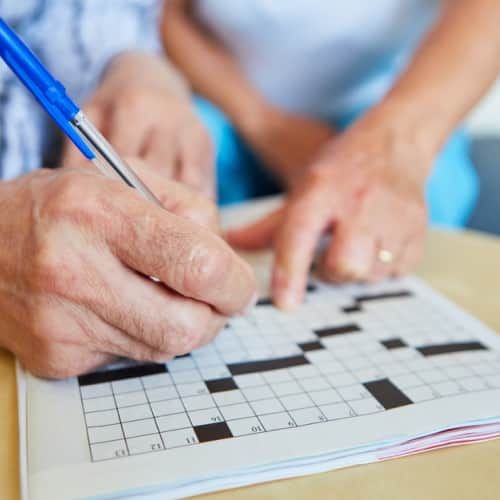
Solving puzzles is one of the most beneficial activities that individuals of all ages can enjoy, even more so for seniors with dementia. The best part is that it won’t even cost much. For example, you could ask your family members or friends to give you puzzles they no longer use, solve crosswords in newspapers, or look online for jumbles, word searches, and other similar activities. Solving puzzles and crosswords helps stimulate creativity, intellectual curiosity, and critical thinking in people of all ages. Therefore, you can take up these activities to ensure the brain receives the exercise it needs to manage your mental well-being. You could also solve relatively easier jigsaw puzzles, which may positively affect your cognitive health.

Spiritual reading is one of the most important aspects for many individuals as they age, especially for those with health conditions like dementia. If you are spiritual, consider getting books of faith to help you stay on track with tradition, times of prayer, or meditations. Spiritual nurturing is a great way to keep yourself engaged and occupied throughout the day. Reciting prayers could help you dive deep into the memory lane to remember things you may have forgotten over the years. Therefore, it could prove beneficial for stimulating various parts of the brain and delaying the progression of mental health conditions like dementia.

If you observe closely around your home space, you might notice loose change lying around, on shelves, drawers, closets, or in your pockets. However, you could use this as an opportunity to create an activity to keep yourself engaged if you feel bored. Locate the coins from around the house and bring them together. For the next part, sort the coins based on their value into glass or ceramic bowls. Segregating the coins may help boost your memory and concentration and keep your brain sharp as you grow older, which is essential to curb or prevent the development of dementia.

If you have a sweet tooth, you must try this activity. While baking at home is a fun activity that most individuals enjoy, it could benefit you if you suffer from mental health problems like dementia. The purpose of the activity is to stimulate the senses involved in the baking process, including sound, taste, smell, and hearing. Factors that could activate these essential senses include touching the utensils, baking foods of different textures, the temperature of the oven, and the feel of the ingredients. Therefore, if you bake, it might help stimulate your cognitive health and trigger happy memories. For instance, the smell of freshly baked cookies or bread may bring back memories of dishes that you enjoyed as a kid.

On days when you don’t feel like taking up difficult activities at home, try simple tasks like folding laundry. Repeated motions like folding soft fabrics may serve as a routine activity and have a calming effect on your general health. The smell of detergents could stimulate the brain and revive past memories. Moreover, folding laundry is an easy task you can manage without help. You could start with small items such as hand towels and t-shirts, which are easy to fold. Remember that it does not matter if you fold the laundry well or poorly. The goal of the activity is to keep yourself occupied for at least some time during the day. Furthermore, the repetitive action of folding laundry can trigger muscle memory, which is a vital component in cognitive health as you grow older.

The Editorial Team at Modern60 is a group of highly skilled professionals with diverse backgrounds in journalism, content creation, editing, and digital media. They bring a wealth of experience and expertise to ensure that every piece of content meets our strict editorial guidelines and quality standards. The team is dedicated to delivering accurate, well-researched, and engaging content across various subjects, including health, wellness, lifestyle, and current events. With their commitment to upholding the highest standards of journalism and content creation, the Modern60 Editorial Team is the driving force behind our mission to empower and inspire our readers.


Unlock expert insights and tips with our exclusive ebook. Enter your email to get your free copy.
Please check your email for a welcome message from Modern60. If it's not in your inbox, kindly check your spam or junk folder
There are no comments yet